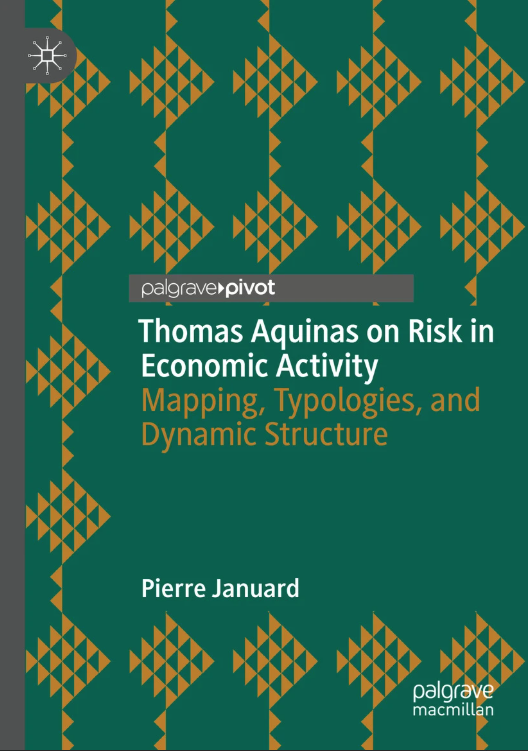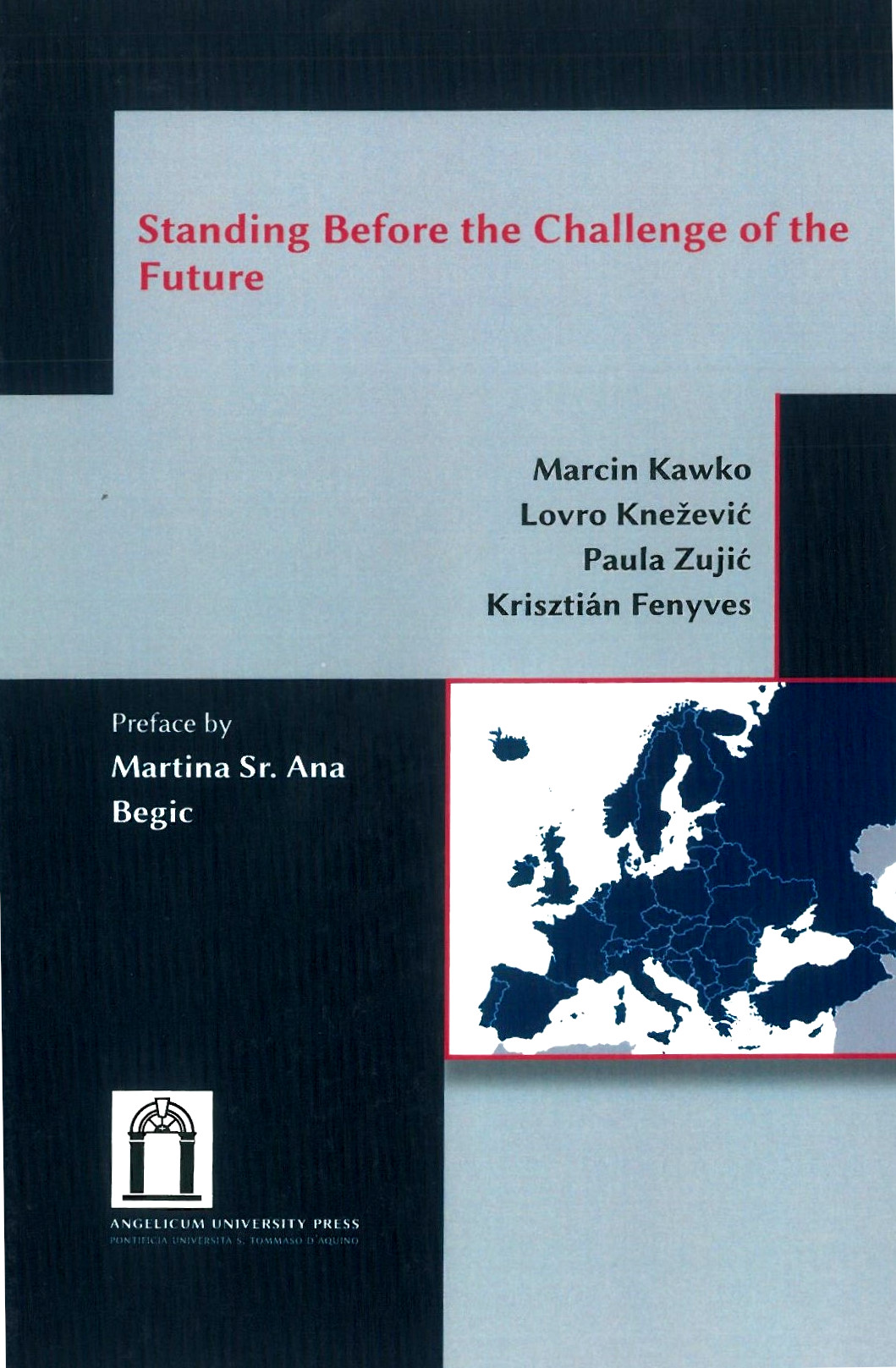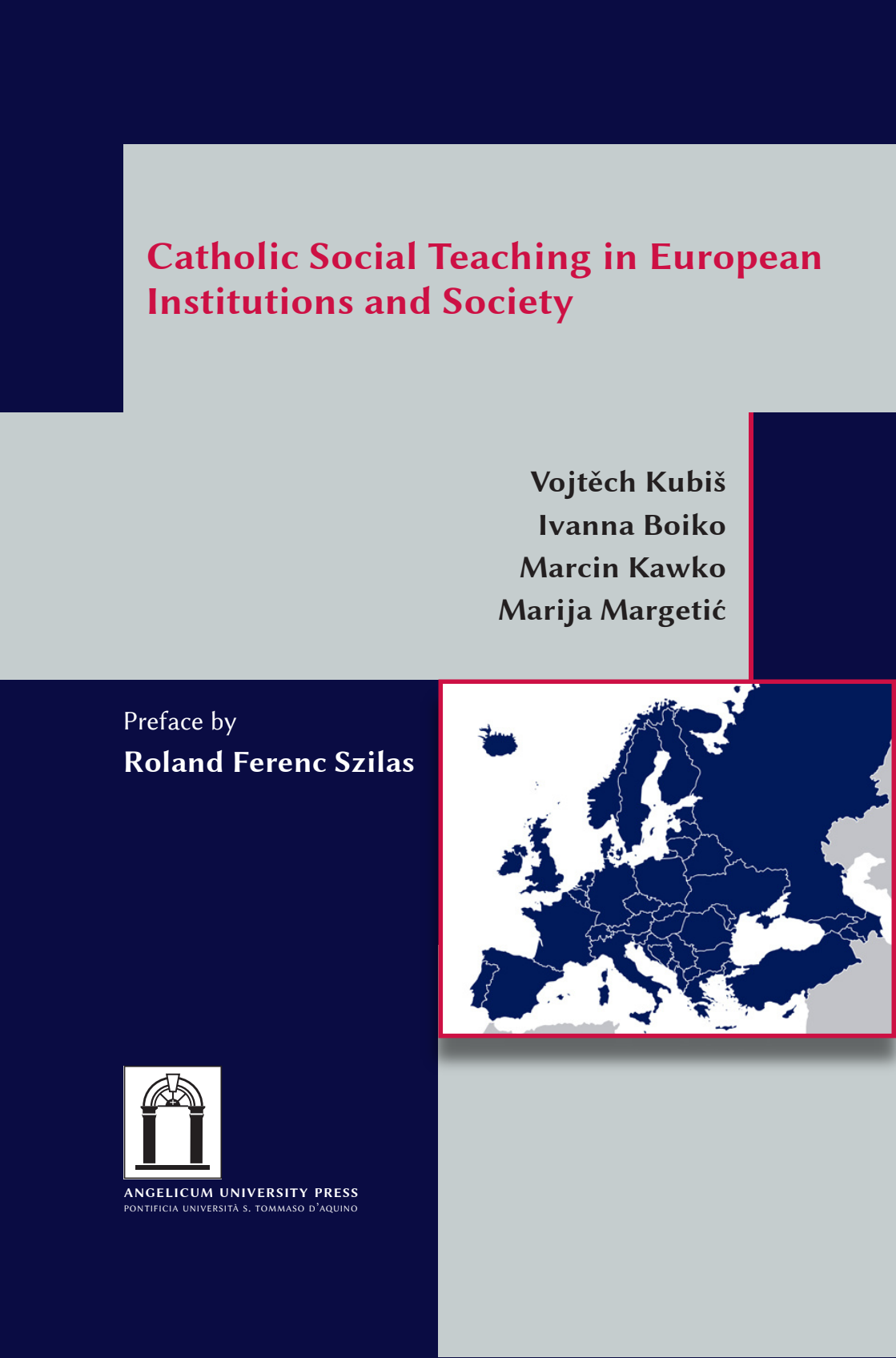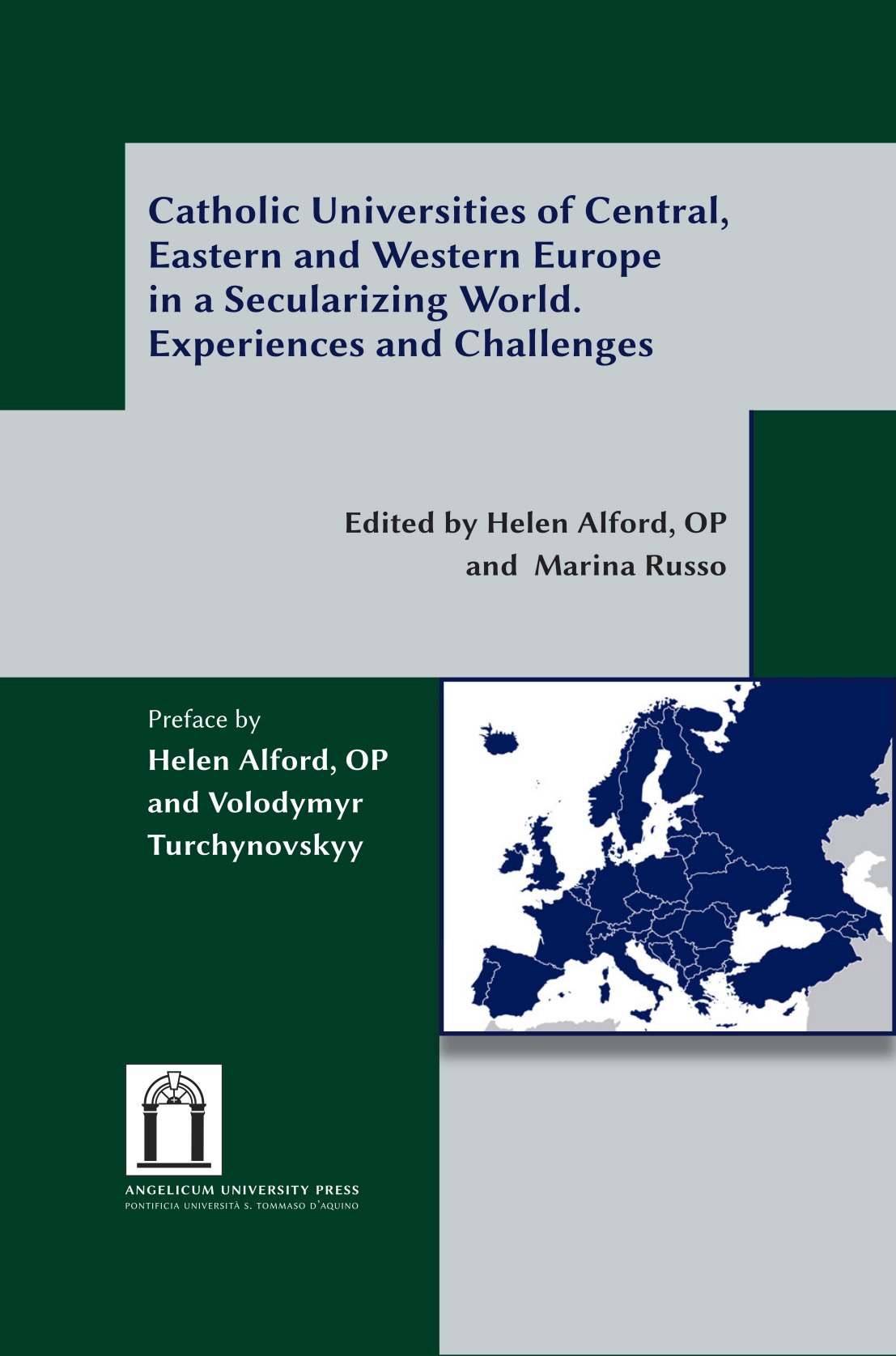
DAVID LUTZ
Introduction

 he earlier works of modern Catholic social teaching understand the virtues primarily in terms of the moral obligations of the state, wealthy persons, and employers towards workers. For example, Leo XIII writes in Rerum Novarum about “a dictate of natural justice more imperious and ancient than any bargain between man and man, namely, that wages ought not to be insufficient to support a frugal and well-behaved wage-earner.”1 In Quadragesimo Anno, Pius XI comments on the munificence of wealthy persons: “Expending larger incomes so that opportunity for gainful work may be abundant, provided, however, that this work is applied to producing really useful goods, ought to be considered, as We deduce from the principles of the Angelic Doctor, an outstanding exemplification of the virtue of munificence.”2 And St. John XXIII writes in Mater et Magistra that the virtue of justice “is to be observed not only in the distribution of wealth, but also in regard to the conditions in which men are engaged in producing this wealth.”3
he earlier works of modern Catholic social teaching understand the virtues primarily in terms of the moral obligations of the state, wealthy persons, and employers towards workers. For example, Leo XIII writes in Rerum Novarum about “a dictate of natural justice more imperious and ancient than any bargain between man and man, namely, that wages ought not to be insufficient to support a frugal and well-behaved wage-earner.”1 In Quadragesimo Anno, Pius XI comments on the munificence of wealthy persons: “Expending larger incomes so that opportunity for gainful work may be abundant, provided, however, that this work is applied to producing really useful goods, ought to be considered, as We deduce from the principles of the Angelic Doctor, an outstanding exemplification of the virtue of munificence.”2 And St. John XXIII writes in Mater et Magistra that the virtue of justice “is to be observed not only in the distribution of wealth, but also in regard to the conditions in which men are engaged in producing this wealth.”3
With Paul VI’s Populorum Progressio, we see a mention of the virtues of the worker himself: “Bent over a material that resists his efforts, the worker leaves his imprint on it, at the same time developing his own powers of persistence, inventiveness and concentration.”4 In this passage we also see a contrast between the effect of work on the world surrounding the worker and its effect on the worker himself. St. John Paul II expands this contrast into an explicit distinction between the objective and subjective meanings of work in Laborem Exercens. The objective meaning of work is external to the worker: “Man’s dominion over the earth is achieved in and by means of work.”5 The subjective meaning of work is internal: “Man has to subdue the earth and dominate it, because as the ‘image of God’ he is a person, that is to say, a subjective being capable of acting in a planned and rational way, capable of deciding about himself, and with a tendency to self-realization.”6 Given our common human nature, to realize oneself is to become virtuous.
Work and the Intellectual Virtues
When Leo XIII wrote about “the misery and wretchedness pressing so unjustly on the majority of the working class”7 in 1891, work was understood primarily as manual or physical labor: “To misuse men as though they were things in the pursuit of gain, or to value them solely for their physical powers – that is truly shameful and inhuman.”8 Similarly, the Russian revolutionaries symbolized labor with the hammer and sickle, representing factory workers and peasant farmers. But economic and technological developments of the past century have brought about changes in the way we work. Most workers today are not performing manual work. At the same time, our understanding of the nature of work has developed since the time of Rerum Novarum and the Bolshevik Revolution.
Although “manual work” is frequently contrasted to “intellectual work,” the legitimacy of the concept of “intellectual work” is a subject of debate. The distinction between intellectual and manual work is related to the distinction between the liberal and the servile or mechanical arts. Bl. John Henry Newman argues for a sharp distinction between the liberal and servile arts in The Idea of a University:
It is common to speak of “liberal knowledge,” of the “liberal arts and studies,” and of a “liberal education,” as the especial characteristic or property of a University and of a gentleman; what is really meant by the word? Now, first, in its grammatical sense it is opposed to servile; and by “servile work” is understood, as our catechisms inform us, bodily labour, mechanical employment, and the like, in which the mind has little or no part.9
Newman quickly qualifies this characterization of servile work as minimally intellectual, however, by acknowledging that some non-liberal professions, including commerce, are highly intellectual:
We contrast a liberal education with a commercial education or a professional; yet no one can deny that commerce and the professions afford scope for the highest and most diversified powers of mind.... Manly games, or games of skill, or military prowess, though bodily, are, it seems, accounted liberal; on the other hand, what is merely professional, though highly intellectual, nay, though liberal in comparison of trade and manual labour, is not simply called liberal, and mercantile occupations are not liberal at all.10
Josef Pieper cites Newman approvingly and argues that the concepts of “intellectual work” and “intellectual worker” are erroneous. Pieper identifies three sources of the mistaken concept of intellectual work: “The first is the view which regards human knowledge as exclusively attributable to discursive thought; the second is the contention that the effort which knowledge requires is a criterion of its truth.” The third source is “the social implication of ‘intellectual work’ that comes more fully to light in the expression ‘intellectual worker.’”11 Pieper explains that this social implication involves the belief that all workers, including intellectuals, must be useful to society. He maintains that this contradicts the essence of the liberal arts. In the conclusion of his argument criticizing the concept of intellectual work, however, Pieper allows that the liberal arts are, in fact, useful to society, though not in the way that the servile arts are useful:
Not everything is useless which cannot be brought under the definition of the useful. And it is by no means unimportant for a nation and for the realization of the “common good”, that a place should be made for activity which is not “useful work” in the sense of being utilitarian....
“It is necessary for the perfection of human society”, Aquinas writes, “that there should be men who devote their lives to contemplation”—nota bene, necessary not only for the good of the individual who so devotes himself, but for the good of human society. No one thinking in terms of “intellectual worker” could have said that.12
Newman and Pieper are mistaken in defending a dichotomy of the liberal and servile arts, and Pieper is mistaken in rejecting the concept of intellectual work. Several authors, including some Dominicans, also find the concept of intellectual work to be unproblematic.
Antonin-Dalmace Sertillanges, O.P. took the name Antonin-Gilbert when he entered religious life, and is known today by both names. He includes “intellectual work” in the opening sentence of The Intellectual Life, published in 1921: “When we speak of [the intellectual] vocation, we refer to those who intend to make intellectual work their life.”13 He also writes of the “labors of the mind.”14 And he refers to those who answer the call to the intellectual life as “workers”: “The special asceticism and the heroic virtue of the intellectual worker must be their daily portion.”15
Raymond Smith, O.P. and Hugh McBrien, O.P. published a pair of articles on the philosophy of work in Dominicana in 1944. They interpret Pius XI’s definition of work – “the application of one’s forces of soul and body to the gifts of nature for the development of one’s powers by their means”16 – as distinguishing three kinds of labor: spiritual, intellectual, and manual:
By spiritual labor is meant the work of the interior life by which man is developed and perfected in intimate union with God. Intellectual labor particularly stresses the activity of the mind, not however to the utter exclusion of the work of the hands. When the labor demands primarily the use of the hands but at the same time the direction of the intellect, it is called manual labor.17
The curse that followed the Fall of Adam is not that we must work, but that our work has become arduous. Smith and McBrien point out that this is true also of intellectual work: “Common to all these [three] degrees of work is the note of arduousness. Experience shows the difficulty of conquering the vices and passions within us. Nor is anyone unaware of the difficulty in acquiring intellectual knowledge.”18 This point is echoed by John Paul II in Laborem Exercens: “All work, whether manual or intellectual, is inevitably linked with toil.”19
Jacques Maritain seeks to ennoble manual work by minimizing the distinction between manual and intellectual work:
Genuine manual work is neither the work of a beast of burden nor that of a robot, but human work in which both body and mind are at play—as they are also in the intellectual work of a writer, a lawyer, a teacher, a doctor, etc., who cannot perform his own task without a certain dose of bodily exertion. The difference is that in one case (manual work) bodily activity plays the part of a (secondary) “principal agent” activated by the mind, and in the other case (intellectual work) the part of a merely “instrumental agent” moved by the mind. So both are, like man, made of flesh and spirit; manual work and intellectual work are equally human in the truest sense and directed toward helping man to achieve freedom.20
We should recognize a distinction between intellectual and manual work, but at the same time understand them as poles of a continuum, with no separation of the two and with most work existing somewhere between the poles. No one can repair a furnace or farm a field or drive a truck without thinking. At the same time, writing a work of metaphysics involves, quite literally, manual activity. Although working with a computer is certainly less physically arduous than picking up hay bales or cement blocks with one’s hands, it can lead to “repetitive strain injury.” And, compared to watching a film or a football game, reading one more chapter or writing one more page at the end of a long day certainly seems like labor. Although reading and writing are often pleasurable, they require effort and can lead to mental fatigue. The domains of “intellectual” and “work” are not mutually exclusive. While some kinds of work are more intellectual than others, all human work is to some degree intellectual. As Smith and McBrien make the point, “To make manual labor specifically distinct from intellectual labor by reducing it to a mere mechanical exercise is to cease to consider it as human.”21
Rather than distinguishing various kinds of work with dichotomies such as intellectual and manual, or liberal and servile, it would be more helpful to distinguish them in terms of the different intellectual virtues. Wisdom, understanding, and science are virtues of the speculative intellect. The liberal arts involve these virtues. Art and prudence are virtues of the practical intellect. Workers who make things exercise the virtue of art. Public servants, lawyers, and administrators exercise the virtue of prudence. Different kinds of work involve different intellectual virtues. But all work involves the intellect.
The distinction between the speculative intellect and the practical intellect corresponds to the distinction between the contemplative life and the active life. It does not, however, correspond to the distinction between rest and work. St. Thomas Aquinas, O.P. argues that contemplation does not consist in rest: “It is true that contemplation enjoys rest from external movements. Nevertheless, to contemplate is itself a movement of the intellect.”22
The work of an academic – research, teaching, administrative service – is a mixture of contemplation and action. Research is more contemplative, service more active. Aquinas explains that teaching is both contemplative and active:
The act of teaching has a twofold object. For teaching is conveyed by speech, and speech is the audible sign of the interior concept. Accordingly one object of teaching is the matter or object of the interior concept; and as to this object teaching belongs sometimes to the active, sometimes to the contemplative life. It belongs to the active life, when a man conceives a truth inwardly, so as to be directed thereby in his outward action; but it belongs to the contemplative life when a man conceives an intelligible truth, in the consideration and love whereof he delights.... The other object of teaching is on the part of the speech heard, and thus the object of teaching is the hearer. As to this object all doctrine belongs to the active life to which external actions pertain.23
Aquinas also comments on the relationship between the contemplative and active lives. The active life hinders the contemplative life in one respect, but is conducive to the contemplative life in another respect:
The active life may be considered from two points of view. First, as regards the attention to and practice of external works: and thus it is evident that the active life hinders the contemplative, in so far as it is impossible for one to be busy with external action, and at the same time give oneself to Divine contemplation. Secondly, active life may be considered as quieting and directing the internal passions of the soul; and from this point of view the active life is a help to the contemplative, since the latter is hindered by the inordinateness of the internal passions.24
Smith and McBrien explain that, because manual labor is both intellectual and manual, it has both subjective and objective meaning: “In manual labor there is a twofold activity: the immanent action of the mind and the transient action of the body directed by the mind. Man is perfected through the intellectual operation. The object is perfected through the transient activity of the worker.”25 Because work is intellectual, we can become virtuous through our work.
Matthew Crawford is both a political philosopher and a motorcycle mechanic. He writes about the intellectual aspect of “manual work” in Shop Class as Soulcraft: An Inquiry into the Value of Work: “This book grows out of an attempt to understand the greater sense of agency and competence I have always felt doing manual work, compared to other jobs that were officially recognized as ‘knowledge work.’ Perhaps most surprisingly, I often find manual work more engaging intellectually.”26 He argues, consistently with Maritain and with Smith and McBrien, that “work that is straightforwardly useful can also be intellectually absorbing.”27
Although performing surgery and practicing dentistry are more intellectual than repairing an automobile and preparing a meal, all involve both the intellect and the hands. They all require intellectual virtues and all contribute to the common good.
Work and the Moral Virtues
Work involves not only the intellectual virtues, but also the moral virtues. All human persons desire happiness and should pursue it by striving to attain the moral virtues. Most adults spend one-third to one-half of their waking hours working. The process of becoming morally virtuous cannot be separated from one’s work.
Sertillanges, in his book about intellectual work, provides an account of the moral virtues that is also relevant to what we call “manual work.” He tells us, contrary to our materialistic cultures, that the purpose of work is not to earn money: “The priest has the right to live by the altar and the man of study by his work; but one does not say Mass for money and one must not think and write for money.”28 This is true of all professions, including business. We require a supply of material goods in order to live virtuous lives. But the purpose of work is to promote one’s own good and the common good by simultaneously growing in the virtues and providing goods and services that benefit other persons. In exchange for these goods and services, we should receive remuneration sufficient to meet our needs and those of our families. But financial and material wealth should always be understood as means to ends more important than financial and material wealth. To convert the means into the end is to live a disordered life.
A central theme of Sertillanges’ book is that pride is inconsistent with the virtuous life and humility is an essential virtue: “All virtues are based on the exclusion of the proud personality, which resents order. Intellectually, pride is the father of aberrations and of artificial and pretentious productions; humility is the eye which reads in the book of life and in the book of the universe.”29
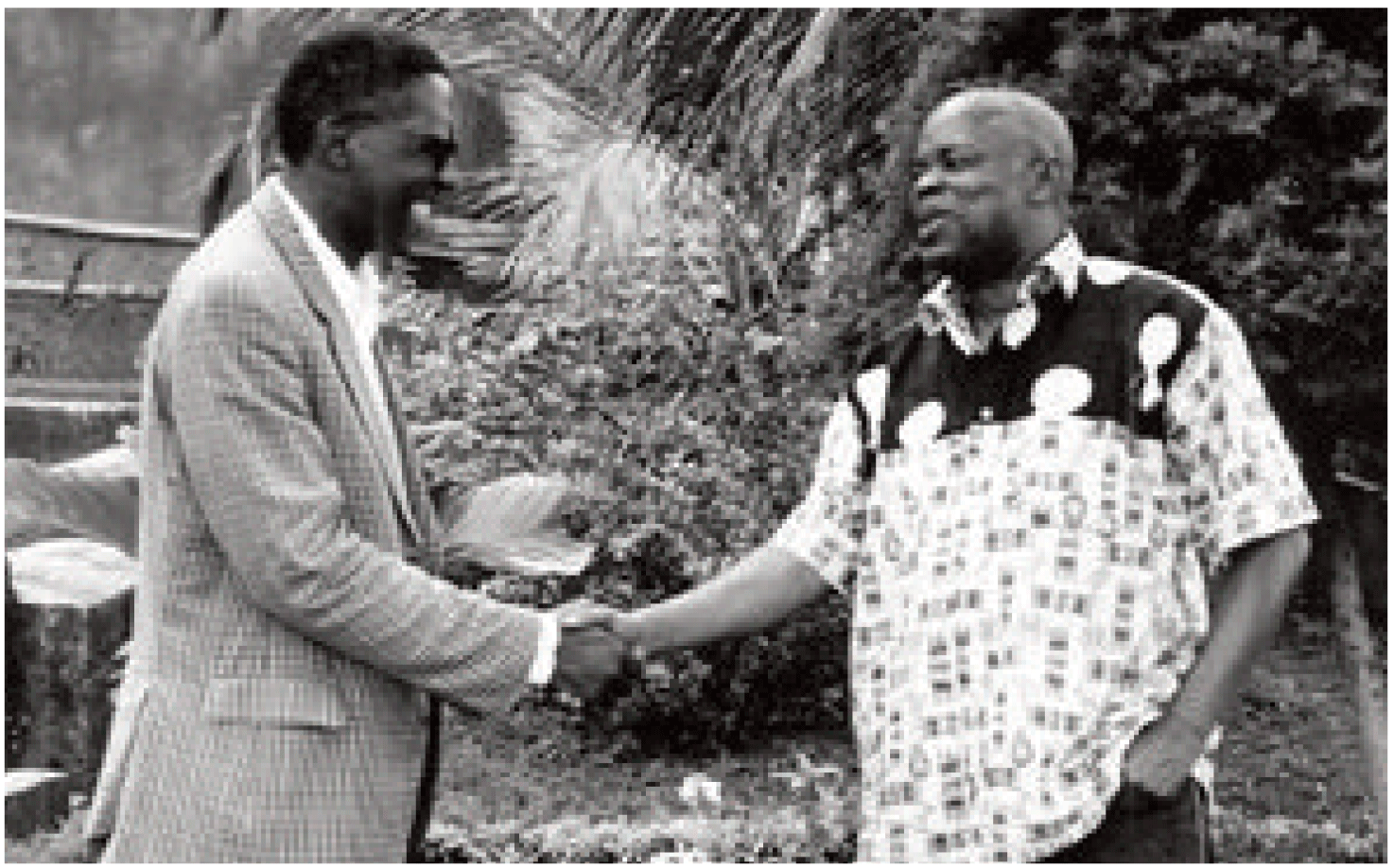
Among the many virtues that Sertillanges discusses in relation to the lives of workers are constancy, patience, and perseverance: “You must bring to your work constancy which keeps steadily at the task; patience which bears difficulties well; perseverance which prevents the will from flagging.”30 Virtuous workers know when to rest, but are not easily distracted in ways that waste time and reduce productivity. Patience is necessary, since our labors often do not bear fruit immediately. And: “To persevere is to will; he who does not persevere does not will, he only plans. He who lets go has never really held; he who ceases to love has never loved. Our destiny is one; a work which is a part of it is still more necessarily one.”31 Finally, one must bring the work to completion: “If the requirements of these three virtues are satisfied there is little fear that the result will be mediocre or imperfect. However, it is a good thing to insist strongly on the necessity of perfecting, and on the duty of bringing to completion, whatever one has thought well of undertaking.”32
Vincent McNabb, O.P. was – together with G. K. Chesterton and Hilaire Belloc – one of the founders of the movement or school of thought that has come to be called “distributism.” The central idea of distributism is that ownership of property should be widely distributed. McNabb exhorts us to leave the industrial cities and return to the land, so that we can produce our own food and practice the virtues of family and community life: “To convert England means to convert not its overcrowded towns but its undertilled and under-peopled countrysides, where homes and homesteads alone can safeguard the freedom with which Christ has made us free.”33 McNabb also tells us that money and material wealth must be understood as means, not as the end: “The mere seeking to have more and more wealth—and especially the seeking to have more and more wealth by mere investments without any work—is the sin of avarice.”34 And he applies the virtue of justice to both prices and profits: “There is in Ethics what is known as the ‘Just Price,’ meaning also the ‘Just Profit.’”35
Marie-Dominique Chenu, O.P. is the “grandfather of liberation theology,” because one of his students, Gustavo Gutiérrez, O.P., became the “father of liberation theology.” In his Theology of Work, Chenu’s concern is not to discuss the role of the traditional virtues in the lives of workers: “It is no longer necessary to adorn the idea of work with a veneer of virtues which, however praiseworthy in themselves, are alien and irrelevant. In the long run, this can only confirm their inapplicability—a mistake from a theological point of view.”36 Nevertheless, Chenu does discuss the relevance of solidarity and community to work: “The next step forward must be to integrate the worker into the factory conceived as a community, to ally technical improvements with genuine participation based on the fraternal solidarity of the workers.”37
Virtuous work cultivates both the intellectual and the moral virtues. All of the moral virtues are connected to prudence, which is an intellectual virtue: “One cannot have prudence unless one has the moral virtues.”38 To become virtuous through work is to become both intellectually and morally virtuous.
Conclusion Our lives should be directed toward true happiness, both in this life and in the next. The only way to pursue true happiness is to live a virtuous life. Because work is a large part of our lives, we cannot separate our work from the endeavor to become more virtuous. Benedict XVI emphasizes the relationship between our work and our sanctification, and the role of the human person as the subject of work: “It is necessary to live a spirituality that helps believers to sanctify themselves through their work, imitating St. Joseph, who had to provide with his own hands for the daily needs of the Holy Family and whom, consequently, the Church holds up as patron of workers. His witness shows that man is the subject and protagonist of work.”39 Similarly, Chenu writes of our responsibility to promote our own development through our work: “As labour becomes less dehumanized and more socialized, it shakes off the yoke of formal contract imposed on it by economics, and is promoted to becoming a part of life in general as lived by free men, conscious of their responsibilities and working towards the achievement of their development.”40 This is the subjective meaning of work.
Our lives should be directed toward true happiness, both in this life and in the next. The only way to pursue true happiness is to live a virtuous life. Because work is a large part of our lives, we cannot separate our work from the endeavor to become more virtuous. Benedict XVI emphasizes the relationship between our work and our sanctification, and the role of the human person as the subject of work: “It is necessary to live a spirituality that helps believers to sanctify themselves through their work, imitating St. Joseph, who had to provide with his own hands for the daily needs of the Holy Family and whom, consequently, the Church holds up as patron of workers. His witness shows that man is the subject and protagonist of work.”39 Similarly, Chenu writes of our responsibility to promote our own development through our work: “As labour becomes less dehumanized and more socialized, it shakes off the yoke of formal contract imposed on it by economics, and is promoted to becoming a part of life in general as lived by free men, conscious of their responsibilities and working towards the achievement of their development.”40 This is the subjective meaning of work.
NOTES
1 Leo XIII, Encyclical Rerum Novarum (15 May 1891), § 45.
2 Pius XI, Encyclical Quadragesimo Anno (15 May 1931), § 51.
3 John XXIII, Encyclical Mater et Magistra (15 May 1961), § 82.
4 Paul VI, Encyclical Populorum Progressio (26 March 1967), § 27.
5 John Paul II, Encyclical Laborem Exercens (14 September 1981), § 5.
6 John Paul II, Encyclical Laborem Exercens, § 6.
7 Leo XIII, Encyclical Rerum Novarum, § 3.
8 Leo XIII, Encyclical Rerum Novarum, § 20.
9 John Henry Newman, The Idea of a University: Defined and Illustrated (London: Longmans, Green & Co., 1852), 106.
10 Newman, The Idea of a University, 107-8.
11 Josef Pieper, Muße und Kult (Munich: Kösel, 1948); trans. Alexander Dru, Leisure: The Basis of Culture (San Francisco: Ignatius Press, 2009), 36.
12 Pieper, Leisure: The Basis of Culture, 40-41.
13 Antonin-Dalmace Sertillanges, La Vie Intellectuelle, son Esprit, ses Conditions, ses Méthodes (Paris: Éditions de la Revue des Jeunes, 1921); trans. Mary Ryan, The Intellectual Life: Its Spirit, Conditions, Methods (Westminster, Maryland: The Newman Press, 1960), 3.
14 Sertillanges, La Vie Intellectuelle, 8.
15 Sertillanges, La Vie Intellectuelle, 8.
16 Pius XI, Encyclical Quadragesimo Anno, § 53; as cited by Raymond Smith & Hugh McBrien, “The Catholic Philosopher Looks at Work,” Dominicana, 29:2 (Summer 1944), 91.
17 Raymond Smith & Hugh McBrien, “The Catholic Philosopher Looks at Work,” Dominicana, 29:2 (Summer 1944), 91.
18 Smith & McBrien, “The Catholic Philosopher Looks at Work,” 91.
19 John Paul II, Laborem Exercens, § 27.
20 Jacques Maritain, “On Some Typical Aspects of Christian Education,” in The Education of Man: The Educational Philosophy of Jacques Maritain, ed. Donald & Idella Gallagher (Garden City, New York: Doubleday, 1962), 149-50.
21 Smith & McBrien, “The Catholic Philosopher Looks at Work,” 96.
22 Thomas Aquinas, Summa Theologiæ, trans. Fathers of the English Dominican Province, 2nd & Rev. Ed. (London: Burns, Oates & Washbourne, 1911), IIa IIæ, q. 179, a. 1.
23 Aquinas, Summa Theologiæ, IIa IIæ, q. 181, a. 3.
24 Aquinas, Summa Theologiæ, IIa IIæ, q. 182, a. 3.
25 Raymond Smith & Hugh McBrien, “The Nature of Work,” Dominicana, 29:4 (Winter 1944), 259.
26 Matthew B. Crawford, Shop Class as Soulcraft: An Inquiry into the Value of Work (New York: Penguin, 2009), 5.
27 Crawford, Shop Class as Soulcraft, 21.
28 Sertillanges, The Intellectual Life, 43.
29 Sertillanges, The Intellectual Life, 131.
30 Sertillanges, The Intellectual Life, 215.
31 Sertillanges, The Intellectual Life, 226.
32 Sertillanges, The Intellectual Life, 227.
33 Vincent McNabb, The Church and the Land (London: Burns, Oates & Washbourne, 1925; Norfolk, Virginia: IHS Press, 2003), 138.
34 Vincent McNabb, Nazareth or Social Chaos (London: Burns, Oates & Washbourne, 1933; Norfolk, Virginia: IHS Press, 2009), 41.
35 McNabb, Nazareth or Social Chaos, 41.
36 Marie-Dominique Chenu, Pour une Théologie du Travail (Paris: Editions du Seuil, 1955); trans. Lilian Soiron, The Theology of Work (Dublin: Gill & Son, 1963), 2.
37 Chenu, The Theology of Work, 65.
38 Aquinas, Summa Theologiæ, Ia IIæ, q. 65, a. 1.
39 Benedict XVI, “Homily on the Solemnity of Saint Joseph,” 19 March 2006.
40 Chenu, The Theology of Work, 38.
 IT
IT  EN
EN 



